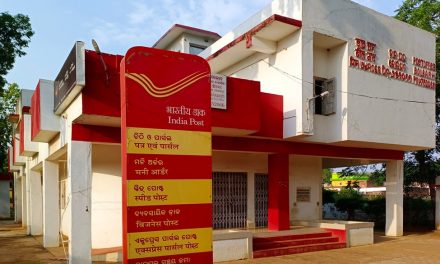
Indian Post must modernise to prepare for future, says minister
Indian government ministers have called on India Post to embrace the nation’s IT “revolution” to prepare for future challenges. The call came as the country’s Department of Posts held a round table with key stakeholders yesterday in New Delhi to discuss developing a new national postal policy.
Shri Sachin Pilot, the minister of state for communications and information technology said the Department had to “revisit and reinvent” itself in the light of a rapidly changing market, and seek out new revenue streams.
The meeting saw emphasis on India Post expanding its role in providing banking services to drive social and financial inclusion in India. The Post has applied for a banking licence from the Reserve Bank of India, and is currently awaiting approval.
And, there was discussion this week of the government’s intention to improve the regulation of the private sector courier firms. Operators will soon have to register to continue operating in India’s courier market, and there are proposals for registration to include requirements to meet certain service standards, but ministers do not want a full licensing regime for the courier industry.
Modernisation
The new national postal policy is seeking to strengthen India Post’s role in driving socio-economic development in India, providing a range of affordable services for the whole population and to support business, particularly for SMEs.
It lays out ambitions to expand and modernise the India Post network, extending services into more rural areas, using the network to provide more retail services and promote financial inclusion and socio-economic equality in the subcontinent.
The policy states that India Post will need technology partners to help it modernise its own communications networks.
The policy proposal also asks the question whether corporate social responsibility should be included as part of the universal service obligation, and notes the importance of using technology like better IT to reduce the usage of paper and improve environmental impacts at India Post.
Standards and addresses
India’s draft postal policy includes proposals to improve the postal market through measures including creation of a new agency to collect and disseminate market research in the postal sector, and setting of legally-enforceable industry standards on service delivery to include issues like letter sizes, track-and-trace performance and faster delivery.
The registration of all operators in the competitive side of the industry should include requirements to meet certain quality standards, and the policy also calls for a mechanism to ensure all registered operators ensure certain minimum wage levels.
The goal of developing a national address system as a national asset for India is a key part of an overall strategy within the policy to standardise mail, along with the proposal of service standards.
The proposals suggest that a PIN code should become part of India’s addresses, as a kind of post code, and that addresses should be standardised, with civic bodies and developers required to work with the Department of Posts on addresses for new developments. Multi-storeyed buildings would be required to have community letter boxes.
A national address database would be created, along with a digital street directory.
Competition
The postal policy proposal does ask the question whether multiple operators should run the universal service, but generally appears to favour more protection for the universal service including more clearly-delineated definitions.
The policy considers the need for a separate industry regulator, and regarding the competitive side of the industry proposes more work to create a level playing field and increase service standards for registered operators.
More than 2,000 small-to-large players operate in the EUR 1bn Indian courier, express and parcel market, which has been experiencing annual growth rates as high as 20%. More growth is expected as e-commerce gains popularity in India.
Future growth could see courier, express and parcels operators sharing networks. Particular potential for increased cooperation exists between India Post and multi-national operators in the area of cross-border mail, parcels and logistics, the policy states, particularly with India Post providing last mile delivery to all areas including rural and remote regions.
The policy discusses the need to develop the national IT infrastructure to foster more e-commerce growth, and develop secure online payment systems, and for cross-border shipping the need for an electronic interface between India Post, other market operators, the airlines and customs officials.











